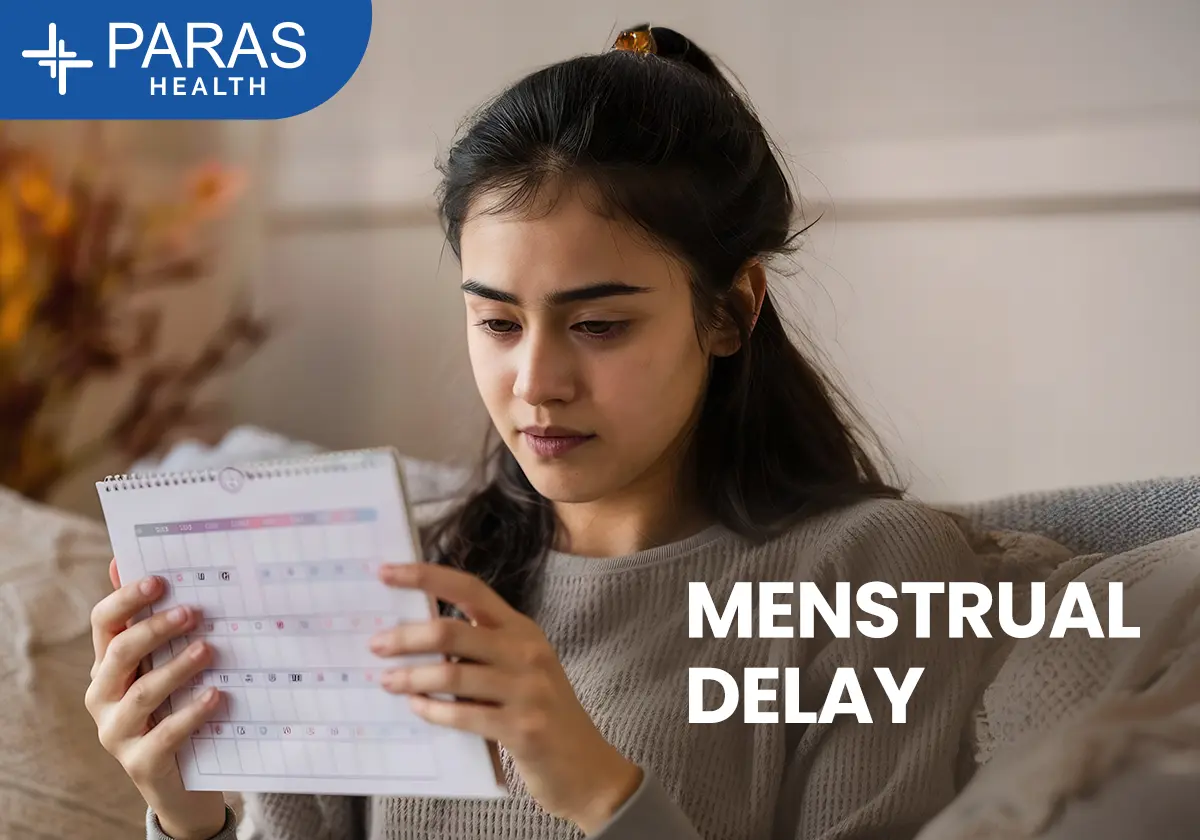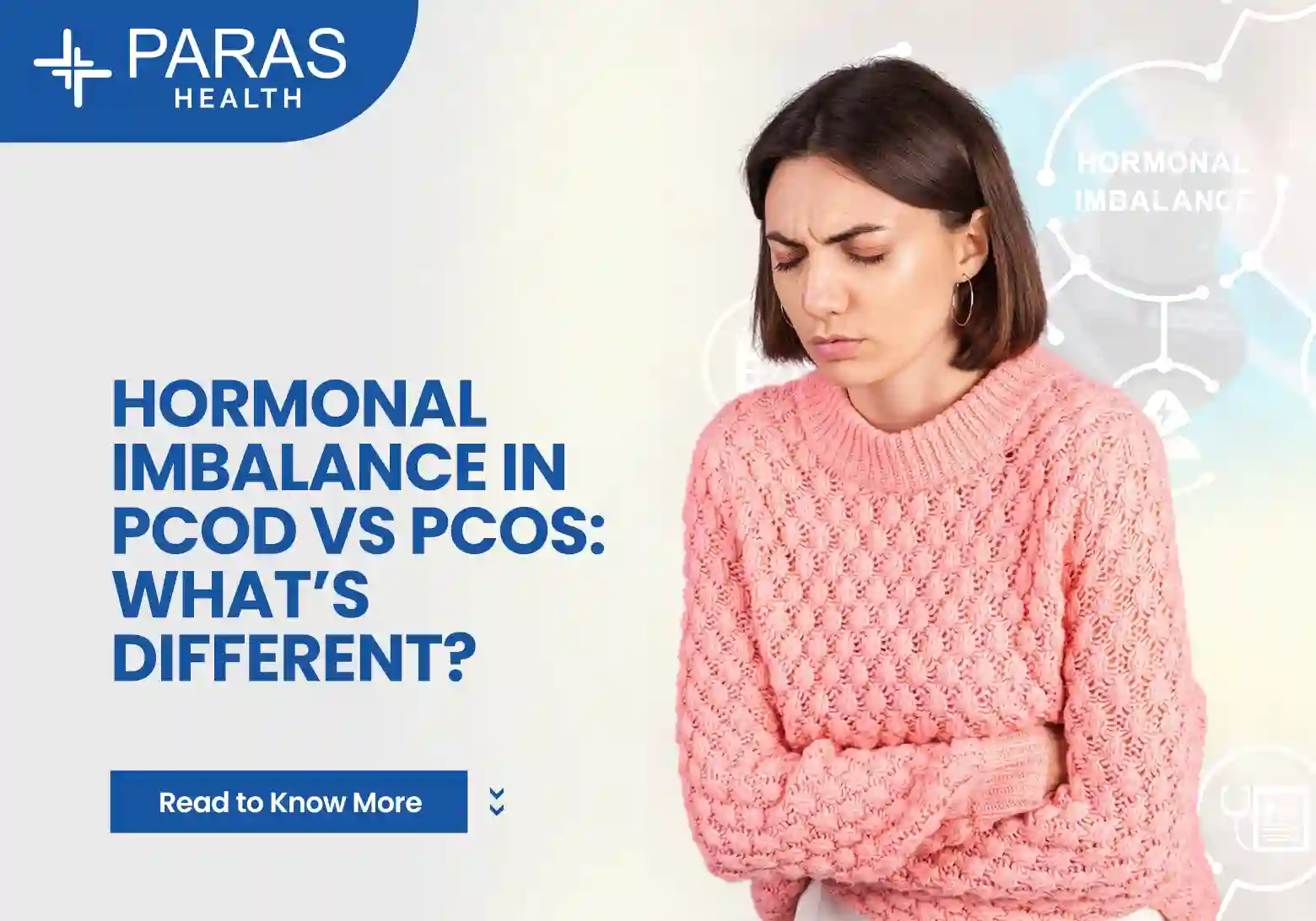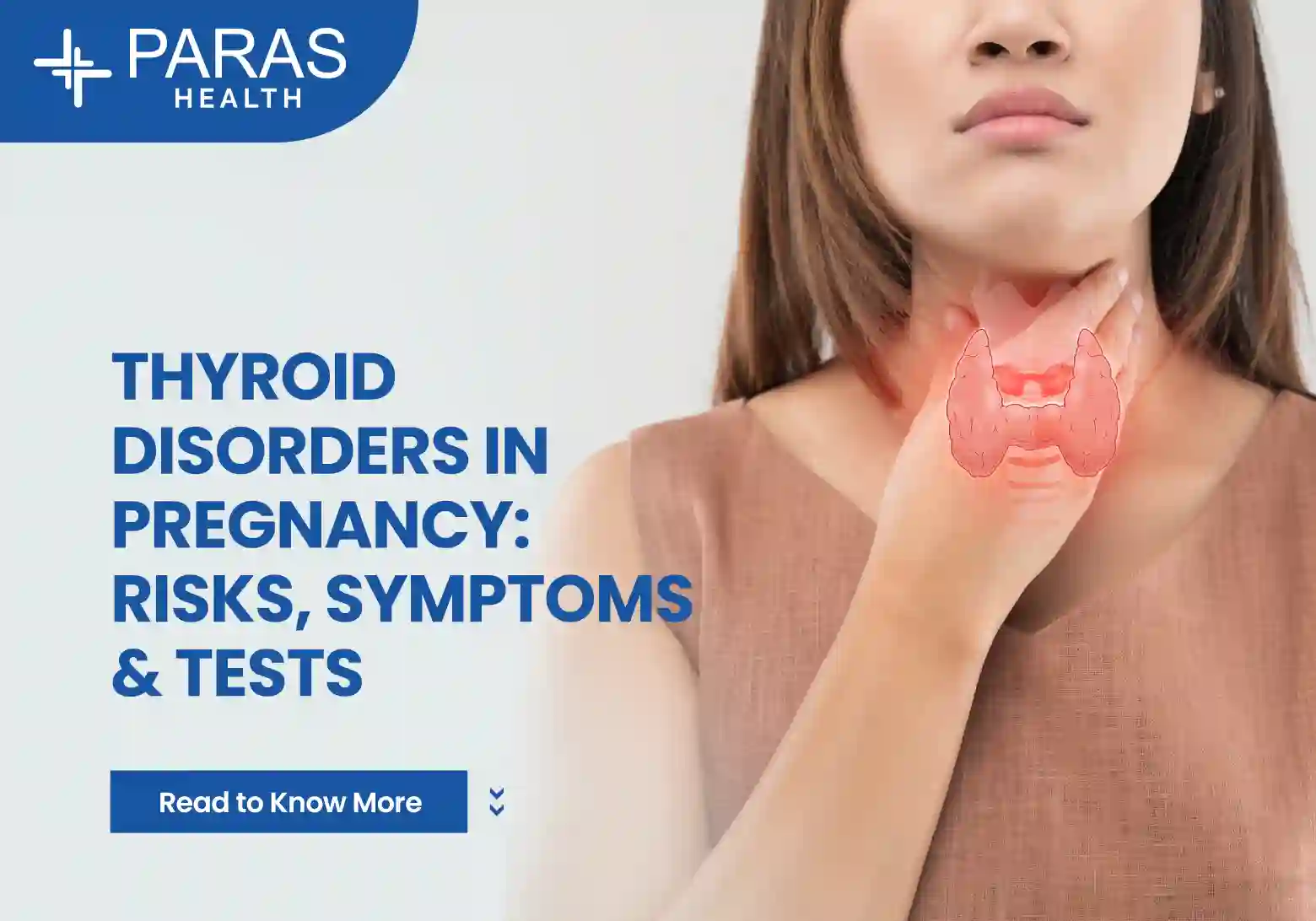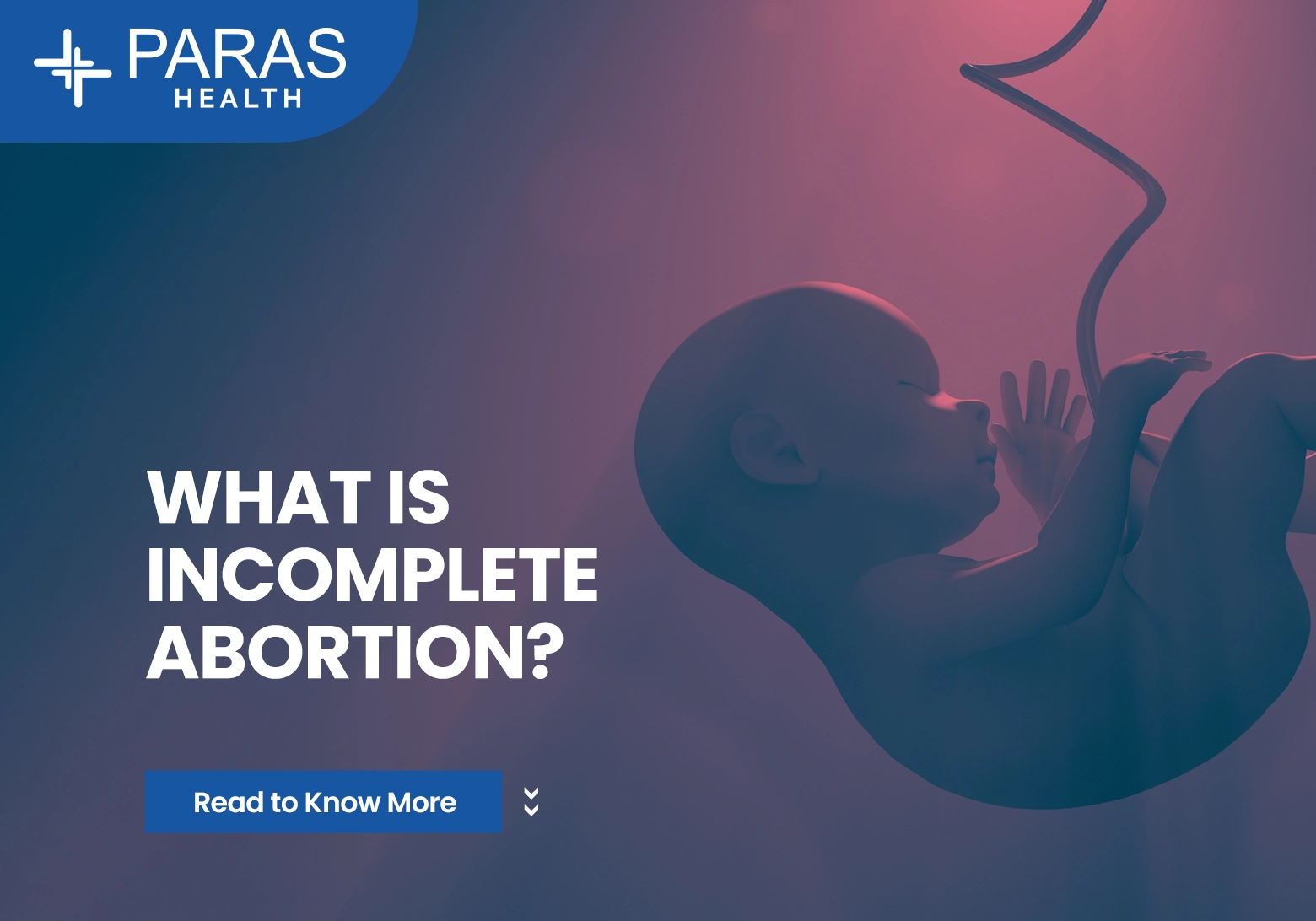PCOD vs PCOS: Understanding the Differences, Symptoms, Causes, and Treatments
Mar 05, 2025
Hormonal imbalances can disrupt a woman’s health, affecting both fertility and overall well-being. Two of the most common conditions related to hormonal disorders are PCOD (Polycystic Ovarian Disease) and PCOS (Polycystic Ovarian Syndrome). While many use these terms interchangeably, they have distinct differences. This blog will clarify the PCOD full form, causes, symptoms, and treatments, along with effective management strategies to lead a healthier life.
What is PCOD? (PCOD Full Form & Meaning)
PCOD stands for Polycystic Ovarian Disease. It occurs when the ovaries produce immature eggs that eventually turn into cysts, leading to hormonal imbalances. This condition can cause irregular menstrual cycles, weight gain, excessive hair growth, and infertility in some cases.
PCOD full form in Hindi: पोलीसिस्टिक ओवरीयन डिजीज़
What is PCOS? (PCOS Full Form & Meaning)
PCOS, or Polycystic Ovarian Syndrome, is a metabolic disorder that affects not just the ovaries but the entire endocrine system. It leads to excessive androgen (male hormone) production, causing severe symptoms like insulin resistance, acne, weight gain, and infertility.
PCOS full form in Hindi: पोलीसिस्टिक ओवरीयन सिंड्रोम
PCOD vs PCOS: What’s the Difference?
|
Factor |
PCOD (Polycystic Ovarian Disease) |
PCOS (Polycystic Ovarian Syndrome) |
|
Nature |
Hormonal disorder with multiple ovarian cysts |
Metabolic disorder affecting the entire body |
|
Egg Maturity |
Ovaries produce immature eggs |
Ovaries fail to release eggs due to excess androgens |
|
Fertility Impact |
May not cause infertility |
Often leads to infertility due to anovulation |
|
Severity |
Less severe; lifestyle changes help |
More severe; requires medical management |
|
Insulin Resistance |
Rarely present |
Common, leading to diabetes risk |
|
Treatment |
Lifestyle changes, medications if required |
Requires medical intervention and long-term management |
PCOD Symptoms in Females
- Irregular or missed periods
- Heavy menstrual bleeding
- Weight gain or obesity
- Excessive facial and body hair (hirsutism)
- Acne and oily skin
- Hair thinning or hair loss
- Infertility issues
- Mood swings, anxiety, and depression
PCOD Symptoms in Hindi (PCOD ke Lakshan)
- अनियमित मासिक चक्र
- अत्यधिक मासिक रक्तस्राव
- वजन बढ़ना या मोटापा
- चेहरे और शरीर पर अत्यधिक बाल आना
- तैलीय त्वचा और मुंहासे
- बाल झड़ना या पतले होना
- बांझपन की समस्या
- मूड स्विंग्स और तनाव
How to Diagnose PCOD?
- Ultrasound Scan – Detects cysts in the ovaries
- Blood Tests – Measures hormonal levels (LH, FSH, testosterone, insulin, etc.)
- Physical Examination – Evaluates symptoms such as weight gain, excessive hair growth, and acne
Causes of PCOD
- Hormonal Imbalance: High androgen levels disrupt ovulation.
- Genetics: A family history of PCOD or PCOS increases the risk.
- Insulin Resistance: High insulin levels can trigger excessive androgen production.
- Lifestyle Factors: Poor diet, lack of exercise, and stress can worsen PCOD symptoms
How to Cure PCOD Naturally & Medically
While PCOD cannot be permanently cured, it can be effectively managed through a combination of lifestyle modifications, medical treatment, and home remedies.
Medical Treatments for PCOD
- Birth Control Pills: Help regulate menstrual cycles.
- Anti-Androgen Medications: Reduce acne and excessive hair growth.
- Metformin: Improves insulin resistance and helps with weight management.
- Fertility Medications: Assist in ovulation for those planning pregnancy.
PCOD Diet Chart & Lifestyle Changes
- Eat a balanced diet: Include high-fiber, protein-rich foods such as vegetables, whole grains, and lean meats.
- Avoid processed foods: Reduce sugar, dairy, and high-carbohydrate intake.
- Exercise regularly: Yoga, strength training, and cardio exercises help manage weight and improve metabolism.
Ayurvedic Treatment & Home Remedies for PCOD
- Ashwagandha, Shatavari, and Turmeric: Herbal remedies to balance hormones.
- Panchakarma therapy: Helps detoxify the body.
- Cinnamon tea, fenugreek seeds, and aloe vera juice: Aid in insulin regulation and hormone balance.
How to Prevent PCOD Naturally?
- Maintain a healthy weight
- Follow a balanced diet with low sugar intake
- Engage in regular physical activity
- Manage stress levels through yoga and meditation
- Get routine checkups to monitor hormone levels
Conclusion
PCOD and PCOS are common yet complex conditions that impact women’s reproductive health. While PCOD can often be managed through lifestyle changes, PCOS may require long-term medical treatment. Early diagnosis, a well-balanced diet, regular exercise, and specialized medical care can help control symptoms and enhance overall well-being.
If you or a loved one is experiencing symptoms of PCOD or PCOS, don’t delay seeking expert care. Consult our experienced gynecologists at Paras Health for a proper diagnosis and personalized treatment plan. Call us today at 8080808069 to book an appointment and take the first step toward better health!
FAQs on PCOD and PCOS
What is the full form of PCOD?
PCOD stands for Polycystic Ovarian Disease.
What is the difference between PCOD and PCOS?
PCOD affects only the ovaries, whereas PCOS is a metabolic disorder impacting the entire body.
Can PCOD be cured permanently?
PCOD cannot be completely cured, but symptoms can be effectively managed through diet, exercise, and medications.
How to reduce PCOD symptoms naturally?
A healthy diet, regular exercise, and stress management can help.
What are the symptoms of PCOD?
Irregular periods, excessive hair growth, acne, weight gain, and infertility.
How to treat PCOD at home?
Herbal teas, Ayurvedic treatments, and a healthy lifestyle can help manage PCOD symptoms naturally.
What is the best exercise for PCOD?
Yoga, brisk walking, strength training, and high-intensity workouts help regulate hormones and improve metabolism.
Which is more dangerous, PCOD or PCOS?
PCOS is considered more severe because it affects overall health, increases the risk of diabetes, and can lead to infertility if not managed properly.








.webp)

